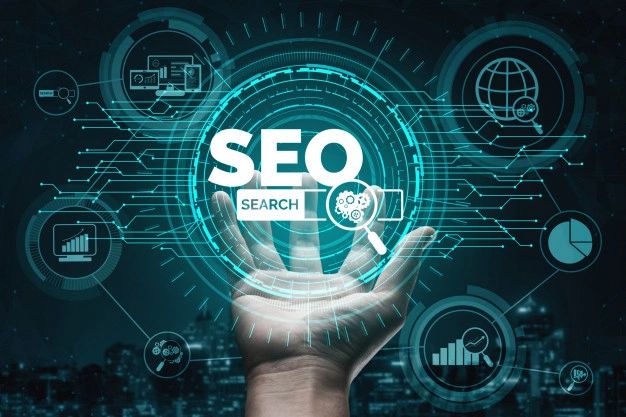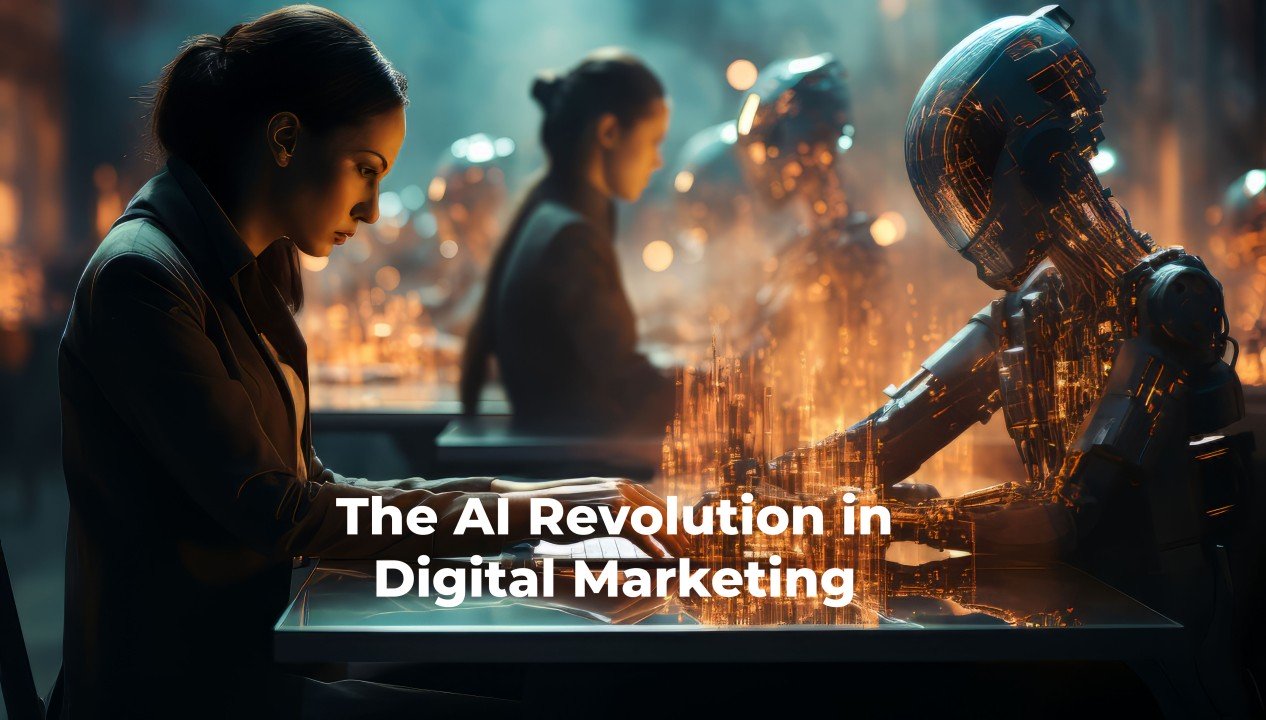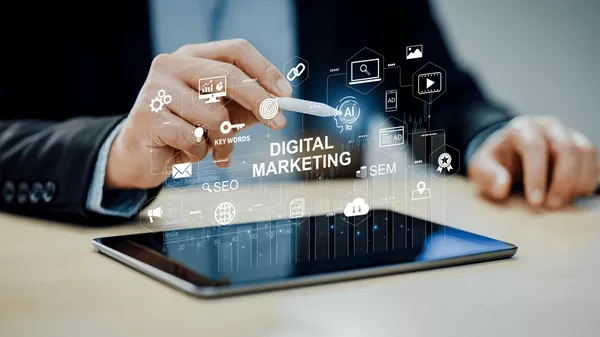Our Recent Blogs

- January 26, 2025
Refining Your SEO Approach to Navigate the Evolving Landscape of 2025
Read More
- January 17, 2025
Boosting Real Estate Success: The Power of Digital Marketing
Read More
- January 15, 2025
How AI is Revolutionizing Digital Marketing in 2025
Read MoreThe Rise of AI in Digital Marketing: How to Stay Ahead
- Team Animax Global
- January 14, 2025
- AI in Digital Marketing, All, Marketing

Table of Contents
Toggle
Artificial Intelligence (AI) has emerged as a transformative force in digital marketing, offering unparalleled opportunities to enhance personalization, improve efficiency, and boost overall campaign performance. In an increasingly competitive landscape, businesses leveraging AI effectively can gain a significant edge over their competitors. This blog delves into how AI is reshaping marketing strategies and provides actionable steps to integrate AI into your campaigns.
What is AI in Digital Marketing?
AI in digital marketing refers to the use of machine learning algorithms, data analytics, and automation tools to improve customer experiences, streamline operations, and deliver targeted marketing. From predictive analytics to chatbots, AI applications are vast and evolving rapidly.
Key Trends in AI-Driven Marketing:
Personalization at Scale: AI enables hyper-personalized experiences by analyzing customer data and predicting behavior. Advanced tools like Dynamic Yield and Persado create tailored content that resonates with individual preferences. For instance, e-commerce platforms use AI to recommend products based on browsing history and purchase behavior, enhancing user satisfaction and driving sales.
Example: Netflix uses AI algorithms to suggest movies and shows based on viewing history, increasing user engagement and retention.
How to Implement: Leverage tools like HubSpot or Salesforce to collect and analyze customer data. Use AI-driven platforms to segment audiences and deliver personalized email campaigns or product recommendations.
AI-Powered Content Creation: Content creation is no longer limited by human bandwidth. AI tools like ChatGPT and Jasper AI can generate high-quality blog posts, social media captions, and ad copy within seconds. This allows marketers to maintain a consistent content calendar while focusing on strategy and creativity.
Example: Coca-Cola used AI to create marketing copy for its “Share a Coke” campaign, generating thousands of personalized messages for customers.
How to Implement: Identify repetitive content needs in your marketing strategy and use AI tools to fill the gap. For blogs and articles, AI can help with ideation, drafting, and even optimization for SEO.
Advanced Predictive Analytics: Predictive analytics tools identify trends and customer behavior patterns, allowing businesses to make proactive decisions. AI analyzes historical data to forecast sales, identify high-value customers, and optimize ad spend.
Example: Amazon’s predictive analytics helps in inventory management and personalized recommendations, resulting in higher conversion rates.
How to Implement: Invest in platforms like Google Analytics 4, Tableau, or Looker Studio that integrate AI-driven insights. Use these tools to anticipate customer needs and refine your marketing campaigns accordingly.
Chatbots and Virtual Assistants: AI-driven chatbots enhance customer service by providing instant responses and solving queries 24/7. These virtual assistants reduce response time, improve user experience, and free up human resources for complex tasks.
Example: Sephora’s chatbot on Facebook Messenger provides makeup tutorials, product recommendations, and even books appointments for customers.
How to Implement: Integrate chatbots on your website or social media platforms. Tools like Drift, Tidio, and Intercom allow you to create customizable chatbots tailored to your brand’s tone and style.
The Benefits of AI in Marketing:
Enhanced Efficiency: Automating repetitive tasks like email campaigns and data analysis saves time and resources.
Improved Accuracy: AI minimizes human errors in data analysis and targeting, resulting in more precise campaigns.
Better Customer Insights: AI provides deeper understanding of customer preferences and behavior, enabling businesses to create meaningful connections.
Challenges of Implementing AI in Digital Marketing:
High Initial Costs: AI tools and platforms often require significant investment.
Data Privacy Concerns: Collecting and analyzing large amounts of customer data must comply with privacy laws like GDPR and CCPA.
Learning Curve: Teams may need extensive training to effectively use AI tools.
Actionable Tips to Stay Ahead:
Invest in AI Tools Tailored to Your Industry: Start small with tools that address specific challenges in your marketing strategy. For example, use Grammarly’s AI for content editing or Hootsuite Insights for social media analytics.
Train Your Team: Equip your marketing team with knowledge about AI tools and their potential. Offer training sessions and encourage experimentation with AI applications.
Balance Automation with a Human Touch: While AI can handle repetitive tasks, ensure your campaigns maintain authenticity by adding a personal, human touch. This builds trust and fosters deeper connections with your audience.
Stay Updated on AI Trends: AI technology evolves rapidly. Follow industry blogs, attend webinars, and join forums to keep up with the latest developments.
Test and Optimize: Regularly test AI-driven campaigns and analyze their performance. Use A/B testing to identify what works best and optimize accordingly.
The Future of AI in Digital Marketing:
The role of AI in digital marketing is expected to grow exponentially. From voice search optimization to AI-generated virtual influencers, the possibilities are limitless. Businesses that embrace AI today will be better positioned to lead tomorrow.
By integrating AI into your marketing strategy, you can unlock new opportunities to connect with your audience, drive growth, and stay ahead of the competition. Whether you’re a small business or a global enterprise, AI has the potential to revolutionize your marketing efforts and deliver measurable results.
